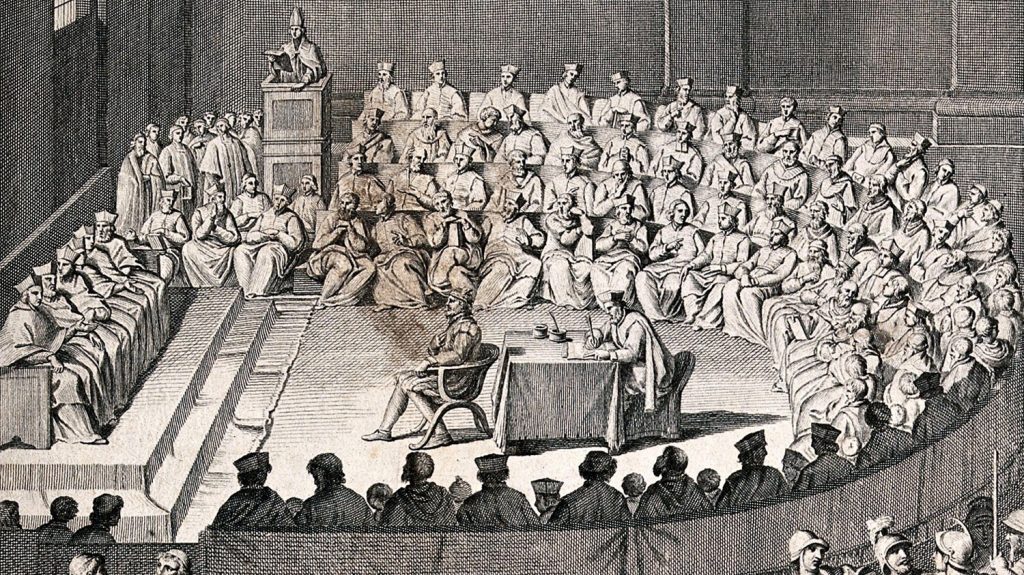The Council of Trent (above) officially opened today in 1545, two months before Martin Luther died. The Catholic Church had been trying to organize a council for years to address the Protestant problem, in which time it had changed from conciliatory and defensive to reformed and militant. So now, instead of trying to win the rebels back, it simply disagreed with them in every way possible. The council produced a vast number of decrees and canons of Church law, telling Catholics what to think about scripture, sin, justification, the sacraments, marriage, purgatory, relics, and so on. It reshaped Catholicism for the next 400 years, until the Second Vatican Council of the 1960s.
Today is the birthday of Blessed Lucy of Narnia (Narnia being a hilltop town in Umbria, Italy), who was born in 1476. Lucy had a quite colourful life, which included receiving the stigmata, plus getting regular visits from long-departed saints, and it is thought that she was the inspiration for Lucy, one of the main characters in The Lion, the Witch and the Wardrobe and other novels of Narnia by CS Lewis. Lewis gave his magical world the name Narnia years after he discovered the Umbrian town in an atlas when he was a boy.
Pope Celestine V resigned just five months after after becoming Pope, today in 1294. He said that he wanted to return to his simple life as a mountain-top hermit, but it was also clear that he just wasn’t very good at being Supreme Pontiff. None of this could have been much of a surprise, as he had been elected on a whim by 11 chronically indecisive Cardinals. As a thank you, the next pope, Boniface VIII, had him thrown into prison, where he died two years later. He was the last Pope to resign until Pope Benedict XVI stepped down in 2013.
Jean Gerson, the French scholar and reformer, was born today in 1363. He became a champion of conciliarism, which argued that church councils rather than Popes should make the most important decisions in the Church – which was an argument the Popes eventually won a century after Gerson’s time. When he was 50, Gerson was almost assassinated during a Paris uprising, and fled to the Cathedral of Notre Dame for sanctuary, where he hid in the roof space above the vaulting for several weeks. He promoted devotion to St Joseph, as he believed the saint had saved him from this crisis, and later gave his support to Joan of Arc, two years before she was burned at the stake.
William Walsham How, the hymn writer, was born today in 1823 in Shrewbury, England. He was known as the Omnibus Bishop because he went by bus in the East End of London when he was a Bishop there in the 1880s. He wrote the children’s hymn ‘It is a thing most wonderful’, which Richard Dawkins, biologist and atheist, revealed that he sings in the shower. But his fame as a hymn writer rests mostly on his fine hymn ‘For all the saints’, for which the composer Ralph Vaughan Williams wrote the tune Sine Nomine in 1906.
But lo! there breaks a yet more glorious day;
The saints triumphant rise in bright array;
The King of glory passes on His way.
Alleluia, Alleluia!
William Walsham How, ‘For all the saints’
Image: Wellcome Collection
